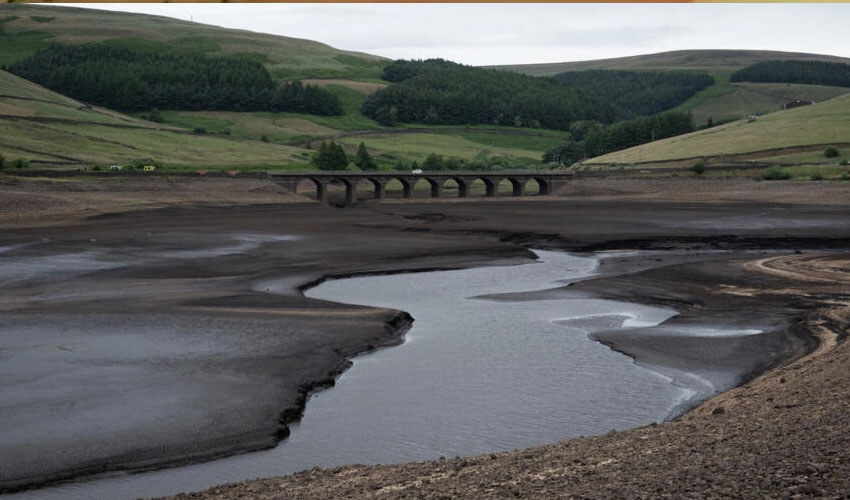Provisional figures released on Tuesday by the UK's national meteorological service indicate that last year is poised to become the country's second warmest on record.
The average temperature in 2023 was provisionally higher than in any other year since 1884, except for 2022, continuing a warming trend attributed to human-induced climate change, as stated by the Met Office.
Two of the UK's constituent nations, Wales and Northern Ireland, experienced their warmest years on record for the second consecutive year.
Additionally, 2023 was provisionally the warmest year for the UK in terms of minimum temperature, according to the agency.
Met Office senior scientist Mike Kendon emphasised the influence of climate change on long-term temperature records in the UK.
He noted that while climate variability will persist, the observed trend in recent decades indicates a consistent breaking of high-temperature records.
Kendon expects this pattern to continue as the climate evolves due to human-induced climate change.
The global community is grappling with extreme weather events, including heatwaves, droughts, and wildfires, exacerbated by climate change.
Last month, the EU's Copernicus Climate Change Service declared 2023 the hottest year on record globally.
In the UK, last year's warmth was driven by heatwaves in June and September, with eight out of 12 months experiencing above-average temperatures.
The provisional mean temperature of 9.97 degrees Celsius put 2023 narrowly behind the previous year, which saw England break its all-time temperature record by surpassing 40 degrees Celsius for the first time.
2023 also ranked as the second warmest for Central England Temperature (CET), the world's longest instrumental temperature series dating back to 1659, according to the Met Office.
Greenpeace UK's policy director, Doug Parr, expressed concern, stating that "climate alarm bells are ringing." Parr accused British Prime Minister Rishi Sunak of disregarding climate issues despite strong voter support for climate action.
Sunak's decisions last year included softening policies aimed at achieving net-zero carbon emissions by 2050 and allowing new oil and gas drilling in the North Sea. Parr urged Sunak to reverse these decisions and implement bold policies to address the climate crisis.



























